ARM and ASR Community Members Recognized at AMS 2024
Published: 22 February 2024
Seven researchers associated with the Atmospheric Radiation Measurement (ARM) user facility and Atmospheric System Research (ASR) program were celebrated in January 2024 at the 104th American Meteorological Society (AMS) Annual Meeting in Baltimore, Maryland.
2024 AMS Fellows
AMS Fellows are selected annually in recognition of “outstanding contributions to the atmospheric or related oceanic or hydrologic sciences or their applications during a substantial period of years.” Of the 25 people elected to the 2024 class of AMS Fellows, six are scientists with recent ties to ARM and ASR.
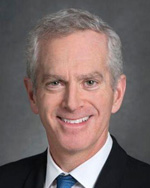
William Collins is the associate laboratory director of the Earth and Environmental Sciences Area at Lawrence Berkeley National Laboratory. He is also a professor in the Department of Earth and Planetary Science at the University of California, Berkeley. In his research, he concentrates on the interactions among sunlight, heat, the coupled climate system, and global environmental change.
Among his many career achievements, Collins received a U.S. Department of Energy (DOE) Secretary’s Achievement Award in 2015 for co-leading the launch of the Accelerated Climate Modeling for Energy (ACME) project. ACME is now known as the Energy Exascale Earth System Model (E3SM).
“My becoming a Fellow of the AMS was made possible thanks to the extraordinary colleagues, students, and postdocs with whom I have had the honor of collaborating over the arc of my career,” says Collins, a co-investigator for ARM’s 2021–2023 Surface Atmosphere Integrated Field Laboratory (SAIL) campaign in Colorado. “Let me especially thank Dr. V. Ramaswamy, director of GFDL (NOAA’s Geophysical Fluid Dynamics Laboratory) and a friend and associate for decades, who led my nomination to a successful outcome.”
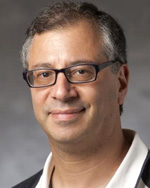
Gabriel Katul, the George Pearsall Distinguished Professor of Hydrology and Micrometeorology at Duke University, co-leads an ASR-funded project to evaluate boundary-layer theory for forest canopies that cover complex terrain. The project uses ARM data from the Green Ocean Amazon (GoAmazon2014/15) campaign.
Katul’s research involves the use of micro-meteorological principles and measurements to describe biosphere-atmosphere mass, energy, and momentum exchanges. He incorporates ecohydrology, the study of relationships between hydrological and biological processes at different scales, and biosphere-atmosphere interactions with principles of fluid mechanics in multidisciplinary investigations.
In 2021, AMS presented Katul with its Award for Outstanding Achievement in Biometeorology, the study of the relationships between atmospheric processes and living organisms. He was elected to the National Academy of Engineering in 2023. When asked how it feels to be named an AMS Fellow, Katul is modest: “I would say luck cannot be excluded given the number of worthy individuals for this AMS honor.”
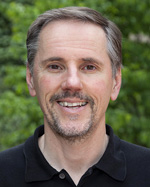
Branko Kosović leads two programs for the Research Applications Laboratory at the National Science Foundation’s National Center for Atmospheric Research in Colorado. He is the director of the Weather Systems and Assessment Program and the program manager for Renewable Energy.
Kosović’s research specialty is boundary-layer meteorology, with a focus on high-resolution simulations of boundary-layer flows. He is involved in modeling efforts associated with ARM’s 2019–2020 Cold-Air Outbreaks in the Marine Boundary Layer Experiment (COMBLE) in Norway.
“Being recognized by colleagues and peers as an AMS Fellow is humbling and a great honor,” says Kosović. “I have been fortunate to work with a number of talented and dedicated scientists, and I feel that my recognition is a recognition of our joint work and accomplishments in advancing modeling of atmospheric boundary layers.”
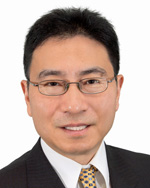
Xiaohong Liu, a professor of atmospheric sciences and the Reta A. Haynes Chair in Geosciences at Texas A&M University, is a member of DOE’s Biological and Environmental Research Advisory Committee and a former member of ARM’s User Executive Committee. In 2023, he was named a Fellow of the American Geophysical Union.
Liu’s research focuses on cloud-aerosol-precipitation-radiation interactions and effects on climate change; multiscale modeling of clouds, aerosols, and their interactions in the climate system; and developments of cloud and aerosol parameterizations for earth system models.
“It is a great honor for me to be elected as an AMS Fellow,” says Liu, a co-investigator for five past ARM field campaigns. “I am deeply grateful for the support from DOE programs, including ARM and ASR, which makes it possible for me to integrate the understanding of aerosol and cloud processes I gained from ARM/ASR research with their representations in earth system models, including E3SM.”

Yun Qian, a lab fellow and an earth scientist at Pacific Northwest National Laboratory in Washington state, served as the program chair for the 22nd Symposium on the Coastal Environment at the AMS annual meeting.
In his research, Qian develops and uses models of the atmosphere and land surface to understand how humans influence the environment. His recent work has involved modeling coastal areas undergoing urbanization and climate change. He is a co-investigator for the Integrated Cloud, Land-surface, and Aerosol System Study (ICLASS), one of ASR’s Science Focus Areas.
“I’m absolutely thrilled to be an AMS Fellow,” says Qian. “AMS has been an important part of my career so far, from meetings and publications to committee work. I’m honored to be in the company of the other fellows.”

Paquita Zuidema, professor and chair of the Rosenstiel School’s Department of Atmospheric Sciences at the University of Miami, was the principal investigator for ARM’s 2016–2017 Layered Atlantic Smoke Interactions with Clouds (LASIC) campaign. Zuidema is a member of DOE’s Earth and Biological Sciences Directorate Advisory Committee and a former member of ARM’s User Executive Committee.
Her research focuses on marine boundary-layer clouds, with an emphasis on microphysics, cloud organization, and radiation. Zuidema studies subtropical stratocumulus, tropical shallow cumulus, and mixed-phase boundary-layer clouds.
“I feel very grateful to the larger community for the recognition,” says Zuidema. “The gratefulness is something I will carry with me for quite a while. At a deeper level, it increases my sense of belonging within the atmospheric sciences research community.”
David and Lucille Atlas Remote Sensing Prize
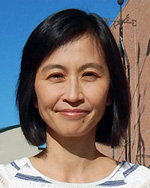
Christine Chiu, a professor in Colorado State University’s Department of Atmospheric Science, received the David and Lucille Atlas Remote Sensing Prize “for outstanding contributions boosting the development of multi-instrument remote sensing methodologies with broad applications to clouds and their effect on climate.” This award is presented every other year in honor of advances in the science and technology of remote sensing and its application to knowledge of the earth, oceans, and atmosphere.
Chiu’s development of remote sensing methodologies has largely relied on ARM observations and been used to study warm rain formation and secondary ice production.
Chiu is the chair of ARM’s Cloud and Precipitation Measurements and Science Group and a co-chair of ASR’s Warm Boundary Layer Processes Working Group. She is a former member of ARM’s User Executive Committee and former chair of the AMS Atmospheric Radiation Committee.
She was a principal investigator for two ARM campaigns and a co-investigator in four. In addition, she has served as a principal investigator for three ASR science projects.
To learn about all the honorees, watch a recording of the AMS 2024 Awards Ceremony.
Nominate Your Peers for 2025
AMS is currently accepting nominations for 2025 awards and honors. The nomination deadline is May 1, 2024.
The 2025 AMS Annual Meeting will be January 12 through 16 in New Orleans, Louisiana.
Keep up with the Atmospheric Observer
Updates on ARM news, events, and opportunities delivered to your inbox
ARM User Profile
ARM welcomes users from all institutions and nations. A free ARM user account is needed to access ARM data.


















